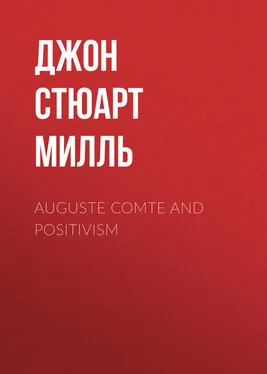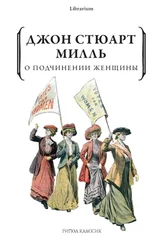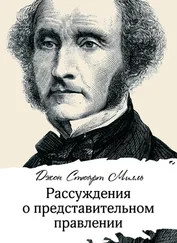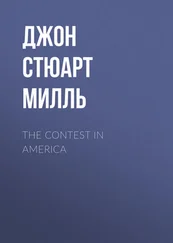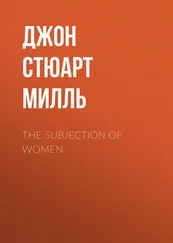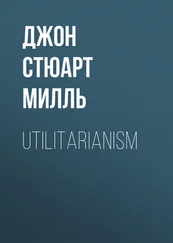Джон Милль - Auguste Comte and Positivism
Здесь есть возможность читать онлайн «Джон Милль - Auguste Comte and Positivism» — ознакомительный отрывок электронной книги совершенно бесплатно, а после прочтения отрывка купить полную версию. В некоторых случаях можно слушать аудио, скачать через торрент в формате fb2 и присутствует краткое содержание. Жанр: Философия, literature_19, foreign_antique, foreign_prose, на английском языке. Описание произведения, (предисловие) а так же отзывы посетителей доступны на портале библиотеки ЛибКат.
- Название:Auguste Comte and Positivism
- Автор:
- Жанр:
- Год:неизвестен
- ISBN:нет данных
- Рейтинг книги:4 / 5. Голосов: 1
-
Избранное:Добавить в избранное
- Отзывы:
-
Ваша оценка:
- 80
- 1
- 2
- 3
- 4
- 5
Auguste Comte and Positivism: краткое содержание, описание и аннотация
Предлагаем к чтению аннотацию, описание, краткое содержание или предисловие (зависит от того, что написал сам автор книги «Auguste Comte and Positivism»). Если вы не нашли необходимую информацию о книге — напишите в комментариях, мы постараемся отыскать её.
Auguste Comte and Positivism — читать онлайн ознакомительный отрывок
Ниже представлен текст книги, разбитый по страницам. Система сохранения места последней прочитанной страницы, позволяет с удобством читать онлайн бесплатно книгу «Auguste Comte and Positivism», без необходимости каждый раз заново искать на чём Вы остановились. Поставьте закладку, и сможете в любой момент перейти на страницу, на которой закончили чтение.
Интервал:
Закладка:
In the change from Polytheism to Monotheism, the Metaphysical mode of thought contributed its part, affording great aid to the up-hill struggle which the Positive spirit had to maintain against the prevailing form, of the Theological. M. Comte, indeed, has considerably exaggerated the share of the Metaphysical spirit in this mental revolution, since by a lax use of terms he credits the Metaphysical mode of thought with all that is due to dialectics and negative criticism – to the exposure of inconsistencies and absurdities in the received religions. But this operation is quite independent of the Metaphysical mode of thought, and was no otherwise connected with it than in being very generally carried on by the same minds (Plato is a brilliant example), since the most eminent efficiency in it does not necessarily depend on the possession of positive scientific knowledge. But the Metaphysical spirit, strictly so called, did contribute largely to the advent of Monotheism. The conception of impersonal entities, interposed between the governing deity and the phaenomena, and forming the machinery through which these are immediately produced, is not repugnant, as the theory of direct supernatural volitions is, to the belief in invariable laws. The entities not being, like the gods, framed after the exemplar of men – being neither, like them, invested with human passions, nor supposed, like them, to have power beyond the phaenomena which are the special department of each, there was no fear of offending them by the attempt to foresee and define their action, or by the supposition that it took place according to fixed laws. The popular tribunal which condemned Anaxagoras had evidently not risen to the metaphysical point of view. Hippocrates, who was concerned only with a select and instructed class, could say with impunity, speaking of what were called the god-inflicted diseases, that to his mind they were neither more nor less god-inflicted than all others. The doctrine of abstract entities was a kind of instinctive conciliation between the observed uniformity of the facts of nature, and their dependence on arbitrary volition; since it was easier to conceive a single volition as setting a machinery to work, which afterwards went on of itself, than to suppose an inflexible constancy in so capricious and changeable a thing as volition must then have appeared. But though the régime of abstractions was in strictness compatible with Polytheism, it demanded Monotheism as the condition of its free development. The received Polytheism being only the first remove from Fetichism, its gods were too closely mixed up in the daily details of phaenomena, and the habit of propitiating them and ascertaining their will before any important action of life was too inveterate, to admit, without the strongest shock to the received system, the notion that they did not habitually rule by special interpositions, but left phaenomena in all ordinary cases to the operation of the essences or peculiar natures which they had first implanted in them. Any modification of Polytheism which would have made it fully compatible with the Metaphysical conception of the world, would have been more difficult to effect than the transition to Monotheism, as Monotheism was at first conceived.
We have given, in our own way, and at some length, this important portion of M. Comte's view of the evolution of human thought, as a sample of the manner in which his theory corresponds with and interprets historical facts, and also to obviate some objections to it, grounded on an imperfect comprehension, or rather on a mere first glance. Some, for example, think the doctrine of the three successive stages of speculation and belief, inconsistent with the fact that they all three existed contemporaneously; much as if the natural succession of the hunting, the nomad, and the agricultural state could be refuted by the fact that there are still hunters and nomads. That the three states were contemporaneous, that they all began before authentic history, and still coexist, is M. Comte's express statement: as well as that the advent of the two later modes of thought was the very cause which disorganized and is gradually destroying the primitive one. The Theological mode of explaining phaenomena was once universal, with the exception, doubtless, of the familiar facts which, being even then seen to be controllable by human will, belonged already to the positive mode of thought. The first and easiest generalizations of common observation, anterior to the first traces of the scientific spirit, determined the birth of the Metaphysical mode of thought; and every further advance in the observation of nature, gradually bringing to light its invariable laws, determined a further development of the Metaphysical spirit at the expense of the Theological, this being the only medium through which the conclusions of the Positive mode of thought and the premises of the Theological could be temporarily made compatible. At a later period, when the real character of the positive laws of nature had come to be in a certain degree understood, and the theological idea had assumed, in scientific minds, its final character, that of a God governing by general laws, the positive spirit, having now no longer need of the fictitious medium of imaginary entities, set itself to the easy task of demolishing the instrument by which it had risen. But though it destroyed the actual belief in the objective reality of these abstractions, that belief has left behind it vicious tendencies of the human mind, which are still far enough from being extinguished, and which we shall presently have occasion to characterize.
The next point on which we have to touch is one of greater importance than it seems. If all human speculation had to pass through the three stages, we may presume that its different branches, having always been very unequally advanced, could not pass from one stage to another at the same time. There must have been a certain order of succession in which the different sciences would enter, first into the metaphysical, and afterwards into the purely positive stage; and this order M. Comte proceeds to investigate. The result is his remarkable conception of a scale of subordination of the sciences, being the order of the logical dependence of those which follow on those which precede. It is not at first obvious how a mere classification of the sciences can be not merely a help to their study, but itself an important part of a body of doctrine; the classification, however, is a very important part of M. Comte's philosophy.
He first distinguishes between the abstract and the concrete sciences. The abstract sciences have to do with the laws which govern the elementary facts of Nature; laws on which all phaenomena actually realized must of course depend, but which would have been equally compatible with many other combinations than those which actually come to pass. The concrete sciences, on the contrary, concern themselves only with the particular combinations of phaenomena which are found in existence. For example; the minerals which compose our planet, or are found in it, have been produced and are held together by the laws of mechanical aggregation and by those of chemical union. It is the business of the abstract sciences, Physics and Chemistry, to ascertain these laws: to discover how and under what conditions bodies may become aggregated, and what are the possible modes and results of chemical combination. The great majority of these aggregations and combinations take place, so far as we are aware, only in our laboratories; with these the concrete science, Mineralogy, has nothing to do. Its business is with those aggregates, and those chemical compounds, which form themselves, or have at some period been formed, in the natural world. Again, Physiology, the abstract science, investigates, by such means as are available to it, the general laws of organization and life. Those laws determine what living beings are possible, and maintain the existence and determine the phaenomena of those which actually exist: but they would be equally capable of maintaining in existence plants and animals very different from these. The concrete sciences, Zoology and Botany, confine themselves to species which really exist, or can be shown to have really existed: and do not concern themselves with the mode in which even these would comport themselves under all circumstances, but only under those which really take place. They set forth the actual mode of existence of plants and animals, the phaenomena which they in fact present: but they set forth all of these, and take into simultaneous consideration the whole real existence of each species, however various the ultimate laws on which it depends, and to whatever number of different abstract sciences these laws may belong. The existence of a date tree, or of a lion, is a joint result of many natural laws, physical, chemical, biological, and even astronomical. Abstract science deals with these laws separately, but considers each of them in all its aspects, all its possibilities of operation: concrete science considers them only in combination, and so far as they exist and manifest themselves in the animals or plants of which we have experience. The distinctive attributes of the two are summed up by M. Comte in the expression, that concrete science relates to Beings, or Objects, abstract science to Events. 2 2 Mr Herbert Spencer, who also distinguishes between abstract and concrete sciences, employs the terms in a different sense from that explained above. He calls a science abstract when its truths are merely ideal; when, like the truths of geometry, they are not exactly true of real things – or, like the so-called law of inertia (the persistence in direction and velocity of a motion once impressed) are "involved" in experience but never actually seen in it, being always more or less completely frustrated. Chemistry and biology he includes, on the contrary, among concrete sciences, because chemical combinations and decompositions, and the physiological action of tissues, do actually take place (as our senses testify) in the manner in which the scientific propositions state them to take place. We will not discuss the logical or philological propriety of either use of the terms abstract and concrete, in which twofold point of view very few of the numerous acceptations of these words are entirely defensible: but of the two distinctions M. Comte's answers to by far the deepest and most vital difference. Mr Spencer's is open to the radical objection, that it classifies truths not according to their subject-matter or their mutual relations, but according to an unimportant difference in the manner in which we come to know them. Of what consequence is it that the law of inertia (considered as an exact truth) is not generalized from our direct perceptions, but inferred by combining with the movements which we see, those which we should see if it were not for the disturbing causes? In either case we are equally certain that it is an exact truth: for every dynamical law is perfectly fulfilled even when it seems to be counteracted. There must, we should think, be many truths in physiology (for example) which are only known by a similar indirect process; and Mr Spencer would hardly detach these from the body of the science, and call them abstract and the remainder concrete.
Интервал:
Закладка:
Похожие книги на «Auguste Comte and Positivism»
Представляем Вашему вниманию похожие книги на «Auguste Comte and Positivism» списком для выбора. Мы отобрали схожую по названию и смыслу литературу в надежде предоставить читателям больше вариантов отыскать новые, интересные, ещё непрочитанные произведения.
Обсуждение, отзывы о книге «Auguste Comte and Positivism» и просто собственные мнения читателей. Оставьте ваши комментарии, напишите, что Вы думаете о произведении, его смысле или главных героях. Укажите что конкретно понравилось, а что нет, и почему Вы так считаете.
